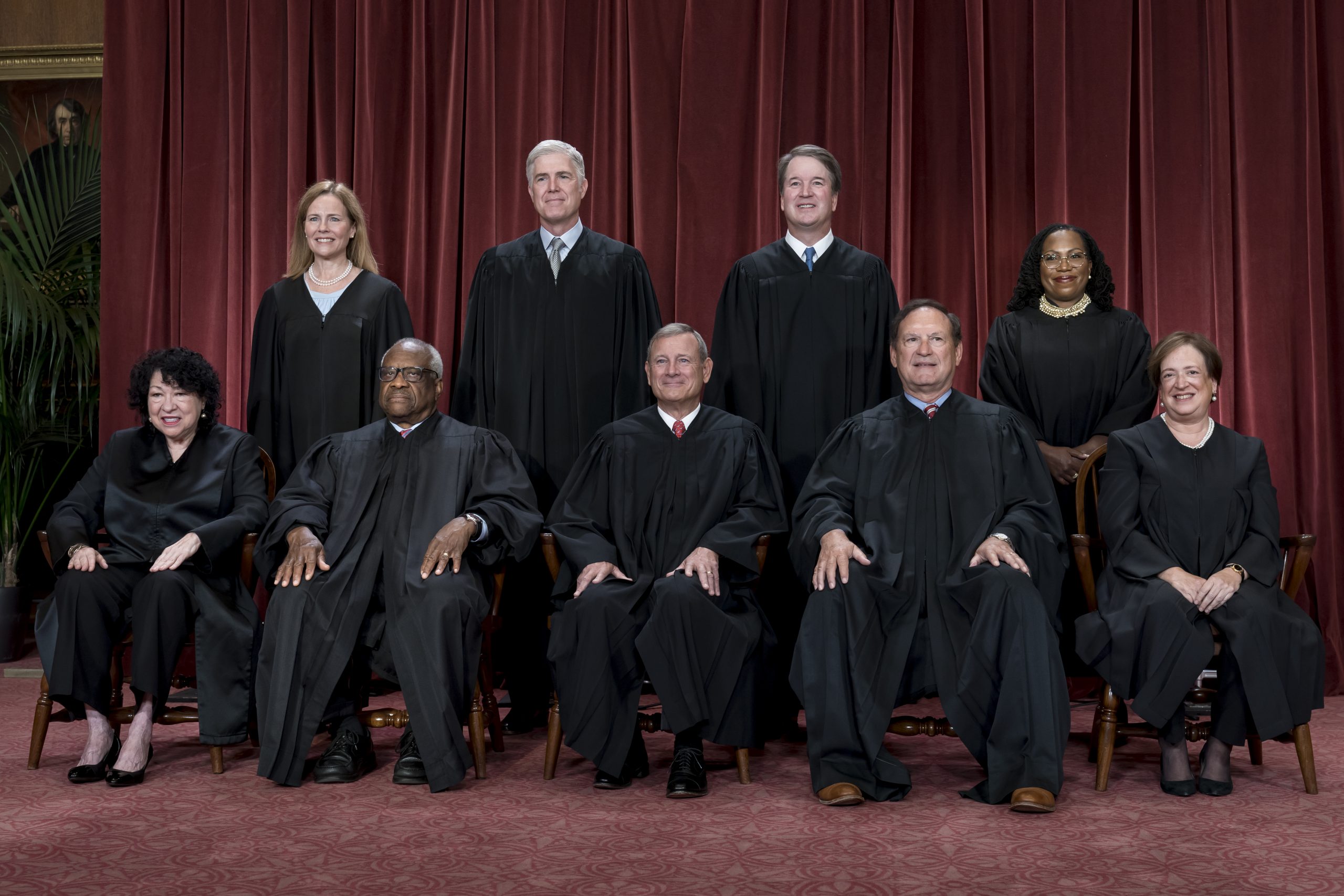For at least the past four years, the Supreme Court has been in active discussions to adopt a code of conduct but has struggled to agree on its parameters, in addition to uncertainty on whether the justices will actually follow through with such deliberations.
The high court “has failed to reach consensus” on a code of conduct despite ongoing internal deliberations about bringing one into the fold, according to the Washington Post, citing anonymous sources who say the topic remains “active.”
The novel revelation of a search for a code coincides with a New York Times report from last week highlighting claims that Chief Justice John Roberts’s spouse conducted paid legal recruitment to place lawyers at firms, some of which had business before the high court. Other liberal critics of the court have often pointed to the conservative political activism of Ginni Thomas, the wife of Justice Clarence Thomas, as one of their top concerns for judicial ethics.
JANE ROBERTS’S RECRUITMENT WORK PUTS SUPREME COURT ETHICS STANDARDS UNDER MICROSCOPE

Since the dramatic leak of the high court’s draft opinion signaling the overturning of nationwide abortion protections, the justices have been subject to reports and allegations that they have failed to live up to the ethical standards of their duties, prompting left-wing organizations to call for a stricter code of conduct for the nine justices. The ethics calls increased as liberal demands to expand the number of justices on the court died down after a committee formed by President Joe Biden expressed “profound disagreement” on the issue of court packing in December 2021.
Legal counsel for the Supreme Court has presented a “working document” outlining what issues a code would address, but there’s no deadline for when the court should make its decision and no guarantees that it will actually adopt one, according to the Washington Post report.
However, justices already consult the federal judges’ code of conduct if ethics concerns are ever raised about their conduct. But justices ultimately make their own decisions on when to practice restraint from certain activities.
For example, the Judicial Conference of the United States, in its Rules for Judicial-Conduct and Judicial-Disability Proceedings, says the “main precepts” of the Code of Conduct are “highly general” and that the code “is in many potential applications aspirational rather than a set of disciplinary rules.”
Judicial ethics expert Russell Wheeler of the Brookings Institution wrote an op-ed in 2011 titled “Regulating Supreme Court Justices’ Ethics—’Cures Worse Than the Disease?'” In his report, he underscored that the Judicial Conference’s rules “explicitly reject the position that a Code [of Conduct] violation is, per se, a ground for finding misconduct.”
Lower court judges make their own decisions on whether to recuse themselves from cases or whether to recuse in a similar fashion to Supreme Court justices. In essence, under the current judicial standards and expectations, there is no recourse for judges or justices who make an apparent ethics violation other than impeachment proceedings, which are rare and unlikely to succeed.
Earlier this week, the American Bar Association passed a resolution to urge the Supreme Court to adopt a code of conduct after more than two dozen legal and ethics scholars wrote a letter in support of the code in March.
“The Supreme Court should have a code of ethics. Exclamation point. The end,” Stephen Saltzburg, a law professor and former Justice Department official who has ties to the conservative Federalist Society, said in a statement via the ABA.
Additionally, legislation was proposed in Congress on Thursday to force the high court to adopt a code of conduct. The bill was reintroduced by Sen. Chris Murphy (D-CT) and was backed by more than 20 co-sponsors in the Senate.
CLICK HERE TO READ MORE FROM THE WASHINGTON EXAMINER
A similar bill pushed by Rep. Hank Johnson (D-LA) last year passed the House before failing in the Senate. Murphy’s new measure is not expected to be passed given that Republicans now control the House and can block the legislation in the Senate and that most recent ethical concerns about the Supreme Court are focused on the conduct of the six Republican-appointed majority of justices.
The Washington Examiner contacted the Supreme Court for response.
